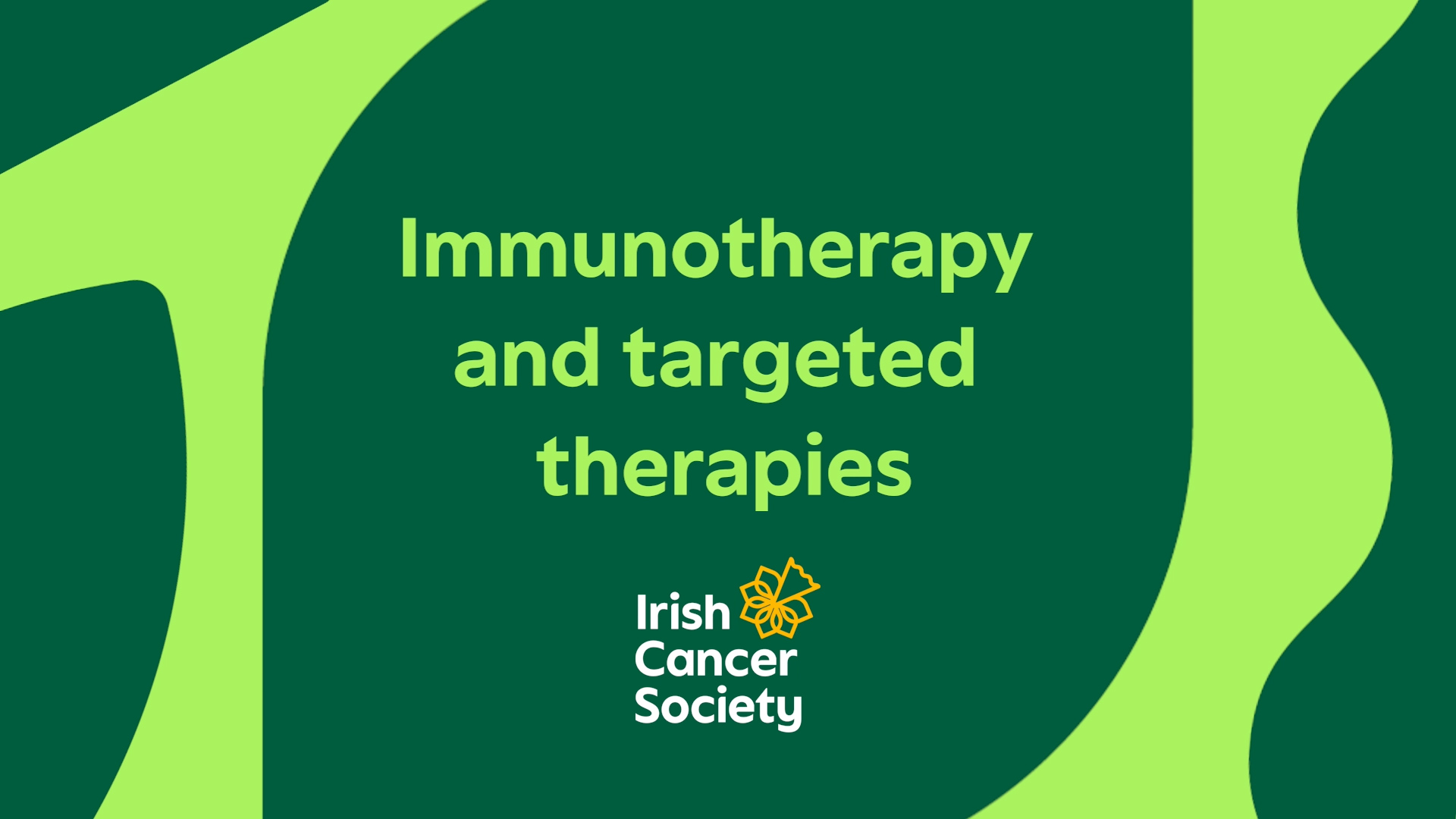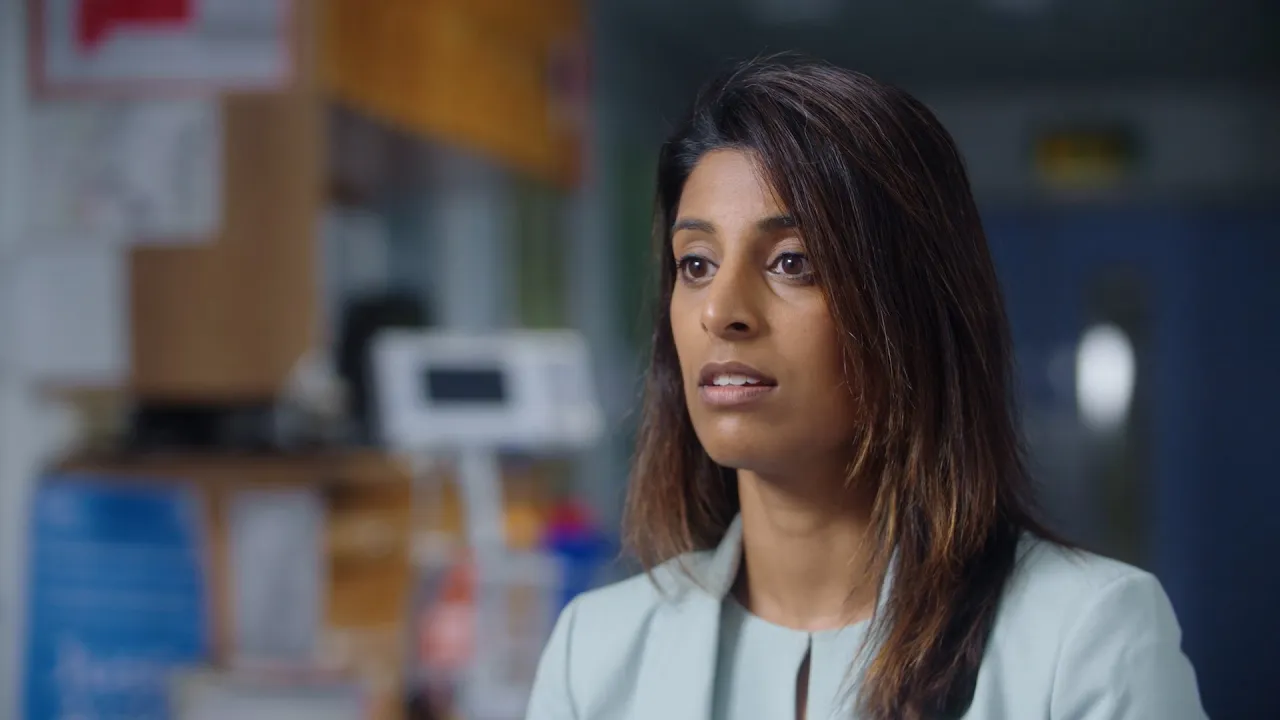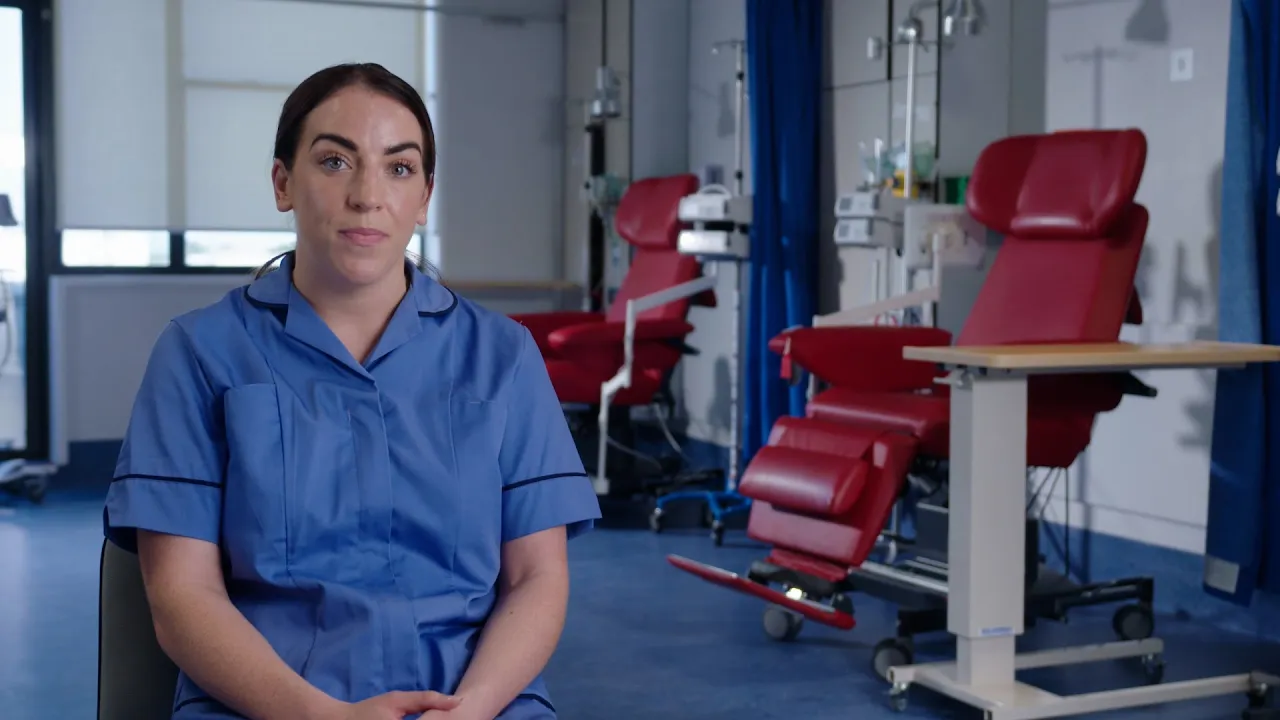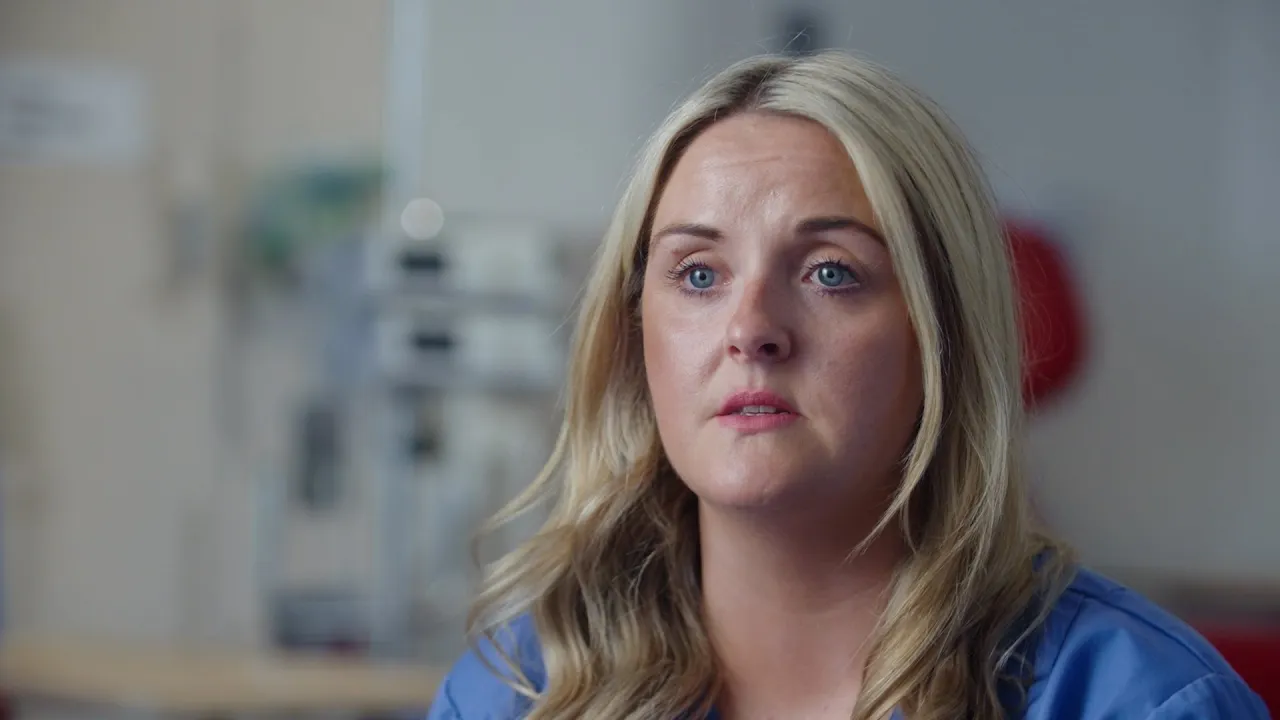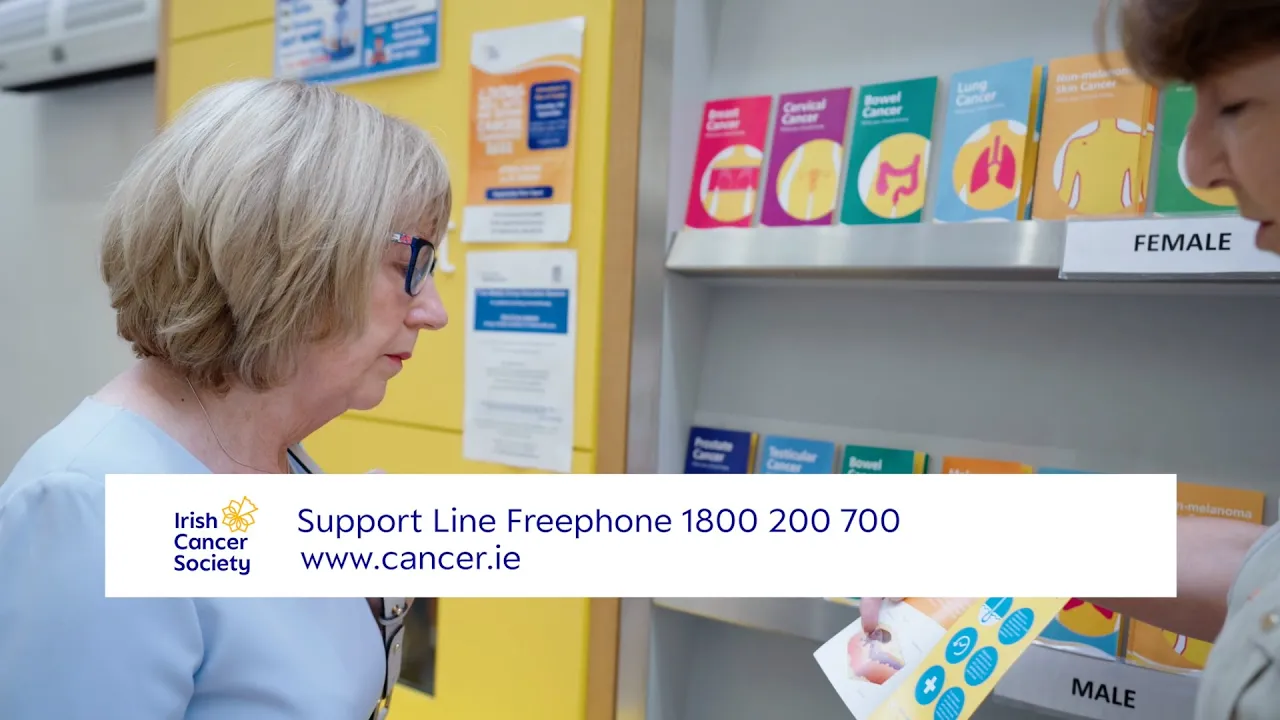Immunotherapy and targeted therapies 1: What to expect
This video explains what to expect in your treatment plan and the different health care professionals involved in your care.
0:03
You are here today to learn about your treatment for cancer, and what you can expect in your treatment plan.
0:11
Some of you may have found out you needed treatment because your GP sent you for checks, and you were then referred on to a specialist or a doctor in a rapid access clinic.
0:22
Some of you may have attended a cancer screening appointment, such as a breast check or bowel check, which led you to getting your diagnosis.
0:31
Over the coming weeks and months, you will meet lots of different healthcare professionals, such as an oncologist, who specialises in cancer, a haematologist, who specialises in blood cancers, nurse specialists, pharmacists, radiologists, to mention a few. They are all part of your medical team, often called a multidisciplinary team or MDT.
0:58
The multidisciplinary team works together to look after you during your treatment and get the best results for you. You will only need to get the name of 1 or 2 key people, such as the nurse specialist or consultant, and they will be able to handle your questions.
1:16
Your first visit is with your lead consultant or doctor, who will explain your diagnosis. The consultant or one of their team may ask you lots of questions and take notes. It's not unusual for 1 consultant to work with another. For example, a bowel surgeon may work with an oncologist. Based on their conversations with you, the results of your tests or scans, and the multidisciplinary team meetings, they will develop your individual treatment plan. Depending on your needs, you may also meet other members of the team, such as a medical social worker or a dietitian.
1:56
Hearing about different tests and medical words may feel overwhelming, and may cause you some worry and anxiety, but this is normal. Be assured that your medical team do understand you are worried, and are there to support you along the way, and give you the best possible treatment for your cancer.
2:17
There are several treatment options for cancer. However, you and the person sitting beside you in the day unit may receive different treatments, even when you chat and it seems you both have the same cancer.
2:32
Due to new advances in the treatment of cancer over the last few years, your consultant and healthcare team have many more treatment options they can use when they are deciding your individual treatment plan.
2:47
In some instances, for example, you may be able to take your treatment at home. They will tailor the plan to your specific situation, your cancer, its stage, and grade.
3:02
Treatments are based on what we call standard protocols which are tried and tested treatment plans, and are based on best practice for you, your specific cancer, taking into consideration your medical history, your physical wellbeing, any underlying conditions, and your personal choice. This is your health.
3:26
You will be the centre of your own care, which is why the team will be keeping you informed every step along the way. Every person will have a tailored plan to suit their cancer, no two are alike. The consultant will monitor the big picture as you move through your treatment.
3:44
At this time, you are likely to hear a lot of new terms and words. Don't be afraid to ask the team to explain what a word or phrase means.
3:53
It's not unusual to have a combination of treatments, such as chemotherapy or a targeted therapy along with radiotherapy. Some patients will receive treatment in a vein through a drip, or by mouth, also called oral anti-cancer medication.
4:10
Sometimes as you progress through your cancer treatment, your doctor may have to make changes to your treatment. Again, this is nothing to worry about and is common practice. The reason why the change is being made will be explained to you.
4:26
At the start of treatment, and depending what hospital you are going to for your treatment, you may be given a cancer treatment alert card, which will include what to do, and the important phone numbers to contact if you are feeling unwell. You will also be given contact phone numbers so you can contact the hospital with any questions you have about your treatment or any side-effects you may be experiencing.
4:55
It is important to know, there will be a lot of people involved in your care. We ask that you take a note of the key telephone numbers of your hospital or radiotherapy centre, so you know who to contact if you are unwell. The most important names and numbers to take note of is your specialist nurse and the acute oncology service nurse.
Immunotherapy and targeted therapies playlist
